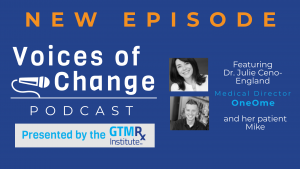Practice Transformation
Want to reduce COVID-19 vaccine hesitancy? Let people talk to their primary care physician about it. That was the message public health experts delivered to the House Ways & Means Health Subcommittee. Vaccine efficacy is complex, Ashish Jha, MD, dean of Brown University School of Public Health, told the panel. “It would be ideal if people would sit down with their physician and have this conversation; the issues are complicated and just don’t fit on a headline.” PCPs are being underutilized in another important way, experts testified: More of them should be providing vaccinations. (MedPage Today)
Some people don’t turn to physicians and pharmacists for COVID advice; drawing on false information available on social media, they are taking a DIY approach. As a result, toxicologists have reported pandemic-driven upticks in poisonings related to at-home coronavirus remedies. The problem is consistent, but the “cure” changes. Hydroxychloroquine popularity has waned, but now, people are ingesting everything from equine medicine to hand sanitizers. WHO and the FDA have launched campaigns to investigate fraudulent claims and to help people identify and report potentially false information. (ABC News)
Evidence & Innovation
To increase precision medicine adoption, build education among patients and providers, implement advanced infrastructure and boost patient engagement, according to a report from the Personalized Medicine Coalition (PMC). Health care “is in the midst of a transformation away from one-size-fits-all, trial-and-error medicine and toward this new, targeted approach in which… the right patient will get the right treatment at the right time. Completing that transformation, however, will require a collaborative effort based on shared values across stakeholder groups…” (HealthIT Analytics; PMC report)
Policy Solutions
In what could be a sign of things to come, lawmakers in Hawaii and Washington introduced bills that would tax drug makers for raising prices without providing clinical evidence to justify the increases, STAT News reports. Drug makers would face penalties of 80% of the difference between the sales generated by its medicine in each state and the revenue the drug would have generated if the company had kept the list price from the previous calendar year, adjusted for inflation. The bills didn’t pass, but they will likely be reintroduced. (Stat NEWS*)
By requiring enhanced patient data sharing and updating EHR requirements (among other actions), the Biden administration could help slow the spread of COVID, Ben Moscovitch of the Pew Charitable Trusts writes in a Health Affairs Blog post. HHS has already begun to study the level of interoperability in the nation’s public health reporting systems, Bloomberg Law reports. However, ensuring patient data is de-identified in compliance with HIPAA may complicate the effort, legal experts warn. Even data that’s de-identified can occasionally be traced back to patients. (Health Affairs Blog; Bloomberg Law; EHR Intelligence)
Note: sources that have an asterisk require login to view the article.
In Case You Missed It!
The GTMRx Best Practices and Innovative Solutions (BPIS) Subgroup of the Practice and Care Delivery Transformation Workgroupis working on a comprehensive medication management (CMM) FAQ tool for physicians. The group is hosting physician focus groups to inform their work—which will be a part of a larger physician stakeholder package.
Please reach out to Izzy Serji, MPH, Operations Manager, GTMRx Institute (E: [email protected]) if you or a physician you know is interested in helping on this initiative.
GTMRx responds to OPM’s request for comments.
The U.S. Office of Personnel Management released an request for information seeking guidance on pharmacy benefits, including medication management and PBMs. The GTMRx Employer Toolkit Taskforce, led by our employer coalition CEOs, sent in their response, urging OPM to implement comprehensive medication management in the Federal Employee Health Benefits Program.
If you are a member of the Institute and would like a copy of the letter, please contact Izzy Serji, GTMRx operations manager (e: [email protected]).
The AMA and ASHP (GTMRx founding funder) are committed to exploring the potential of pharmacogenomics-based selection, dosing and monitoring of medications to improve health outcomes. To further clinicians’ understanding of this emerging area of medicine, the AMA and ASHP are developing an informative series of virtually convened and facilitated webinars to evaluate the evidence base, identify and promote current best practices and guidance on the clinical application of pharmacogenomics and understand the health equity implications of adoption.
The webinars are free and will run March 2, March 11 and March 18. Register here.
Developed by the Best Practices and Innovative Solutions Subgroup of the Practice and Care Delivery Transformation Workgroup, learn how integrated health care organizations and health plans, such as Minnesota Health Fairview, have implemented successful programs designed to optimize medication use. This case offers insight into the programs’ impact on outcomes, clinician satisfaction, cost savings and patient satisfaction. Also included are details about program size and success factors. Read more.
Listen here.
Hosted by the GTMRx Institute’s executive director and co-founder, Katherine H. Capps, Voices of Change features leaders who have knowledge, experience and ideas to solve this urgent need to get the medications right. Did you miss the most recent episode?
AmazonSmile is an easy way for 0.5% of your qualified purchases go to the GTMRx Foundation at no cost to you. And signing up is simple—go to smile.amazon.com and select “Get the Medications Right Foundation” as your charity of choice. If you prefer to directly donate instead, you can do so here.
Adding the foundation on AmazonSmile will help us continue to provide no cost educational webinars, issue briefs, weekly news briefs and promote the need for transformation of our current system of medication use through social media campaigns.





